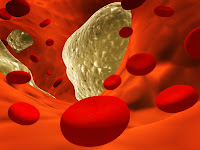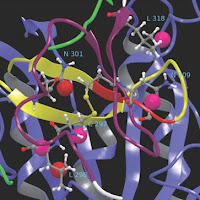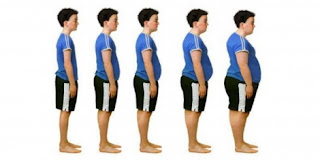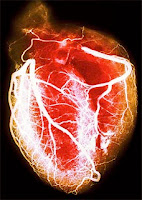Oh boy, here we go…so you know that I’m not shy about discussing my health. I’ve got nothing to hide, and I approach my health from a very proactive position. I also have a belief system that is integral to how I care for my health—I know that one day I am going to die, could be tomorrow, but for me to experience my life to the fullest today, I am quite certain that it requires me to care for my body as one of my most valuable assets. So I don’t obsess about “never getting sick,” I just treat my body like I love it, and I trust that it knows—through its innate intelligence–how to run my body, provided I treat it in the right ways. Simple.
So long-time readers of this blog will recall that I have high cholesterol. Have I ever been worried about it? No, never. Not even a little. In fact, I just had my annual physical in February. Once again, stellar health, thank you, thank you…athlete’s numbers…’cept I have high cholesterol.
 If you’ve been following my story, you’ll recall that my doc (love him, bless his heart…and I mean that sincerely; he is the greatest) has, of course, recommended I go on statins. Now I’ve got my inner theories about it, regarding liability and stuff like that, but whatever…he knows I’m not going to take them. It’s simple: my HDL levels (“good” cholesterol) are above and beyond excellent. My total cholesterol to HDL ratio is at the “optimum” level. Ha ha ha…I’m in the absolute lowest risk category for heart disease: I’m not taking statins!
If you’ve been following my story, you’ll recall that my doc (love him, bless his heart…and I mean that sincerely; he is the greatest) has, of course, recommended I go on statins. Now I’ve got my inner theories about it, regarding liability and stuff like that, but whatever…he knows I’m not going to take them. It’s simple: my HDL levels (“good” cholesterol) are above and beyond excellent. My total cholesterol to HDL ratio is at the “optimum” level. Ha ha ha…I’m in the absolute lowest risk category for heart disease: I’m not taking statins!
And my doctor knows this. I saw the perplexed look on his face when I pointed out those values to him (I guess that’s not the typical presentation of his high cholesterol patients). Shrugging it off, he still recommended the statins (and has every year for the last four). Sigh…
Okay, here’s the point of this piece: A recent study has shown that low levels of LDL (“bad”) cholesterol, in the absence of cholesterol lowering medications, has a strong link to cancer. What?! That’s right, and although we’ve known of this link for a long time (30+ years), this study was the first ever look at the low LDL-cancer link over an extended period of time (~19 years), and only in patients with no history of taking cholesterol-lowering drugs.
The results showed a couple things. One, the link cannot be due to taking statins since all subjects were statin-free throughout the study, and two, low cholesterol cannot be a byproduct of the cancer itself, since low LDL levels were observed well before any preclinical signs of cancer were present. In other words, statins don’t cause cancer, and cancer doesn’t cause low cholesterol. That we know.
What we don’t know is what the connection is. Hmmm…. Well let me give it a try: I believe that the body has an internal wisdom, an Innate Intelligence, that directs its operation. I believe this system is flawless. The body knows what to do at all times, and provided with the right fuel (whole, natural foods), necessary movement, proper bodywork and tension relief, adequate rest, adequate hydration, full, deep abdominal breath and minimal toxins, it will continue to operate flawlessly until it expires (which it will also do flawlessly).
 However, too many people do not observe the natural laws of health—they eat poorly, fail to exercise regularly, ignore bodywork until they are in so much pain they can’t stand it, get little rest, drink too many sodas and not enough water, breathe shallowly from their chest, and take multiple drugs and other toxins, and so, yeah…their Innate Intelligence get severely challenged and fatigued; or it can only do the minimum with the resources it is given and becomes overloaded.
However, too many people do not observe the natural laws of health—they eat poorly, fail to exercise regularly, ignore bodywork until they are in so much pain they can’t stand it, get little rest, drink too many sodas and not enough water, breathe shallowly from their chest, and take multiple drugs and other toxins, and so, yeah…their Innate Intelligence get severely challenged and fatigued; or it can only do the minimum with the resources it is given and becomes overloaded.
Further, we have a medical science that believes its own limited observations are the whole to the puzzle, and it make erroneous conclusions based on this small, piece-wise information, and yet it still believes it knows how to run the body better than Mother Nature does. And then we find out later that there is, in fact, more to the puzzle. You don’t say…?
But taking all the above points into consideration: Somehow when LDL cholesterol is disrupted from one of its many functions—that is, when it’s in too low of concentration—leads to cell overgrowth or cancer. Thus, not that statins, by lowering cholesterol, will cause cancer, but instead, perhaps this medical campaign to reduce cholesterol at all costs is an erroneous one. Perhaps the body produces what it needs (cholesterol can be both endogenous [created within] and exogenous [recieved from without]), and putting everybody on statins, particularly those with stellar numbers in all other health measurements, is just plain foolish.
No medical doctor or pharmaceutical researcher will ever know human physiology better than the human body does. Why the arrogant medical scientific (?) machine believes that it understands what cholesterol levels should be better than the body does is completely perplexing to me. If we were simply talking about a few hundred thousand people on statins because they have super-dangerously high levels that puts them at severe risk of heart disease, then…okay, I would understand. But to have tens of millions of Americans on these useless and dangerous cholesterol lowering drugs is purely idiotic.
So once again I have to believe it all comes down to three things–money (pharmaceuticals), liability (doctors protecting their asses) and job protection (medical professionals making sure they do not become obsolete). That’s the reality behind the cholesterol-statin push in the western world. I’m sure that’s why my doctor recommends statins to me despite my excellent health, I’m sure it’s why statins are called “the best selling drugs of all time,” and I’m sure it will continue until the next blockbuster drug addressing normal physiology comes along to take it’s place. Shouldn’t be too far off—stay tuned.


























